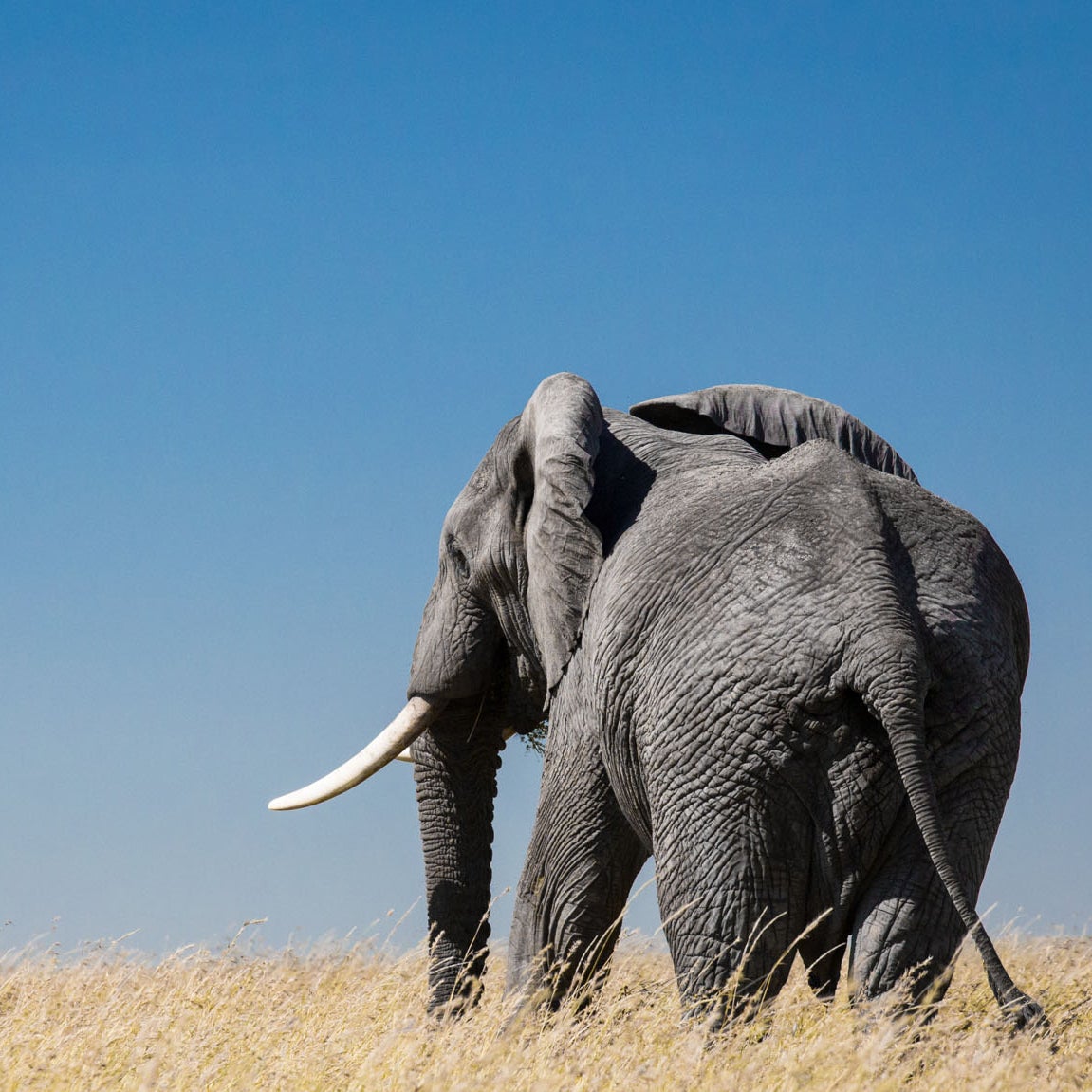Take a deep breath everyone, trophy hunting is back in the news. Let’s see what we can do to calm the Internet outrage machine before it really gets going.
Here’s the backstory: the Department of the Interior announced it was going to begin allowing hunters to bring elephant trophies back to the U.S. from Zimbabwe and Zambia, then President Trump stated he was going to cancel that order.��The Obama Administration banned such imports back in 2014, due to what it saw as .��
Elephants are among the most intelligent and social of animals, and their numbers in Africa have fallen from a pre-industrial high of 10 million to . So hunting them is bad, right? Well, that’s why everyone gets so outraged on the Internet about trophy hunting. But it’s not necessarily the reality.
Give me a few paragraphs to explain before you start shouting at your computer screen.
There are two major factors contributing to shrinking elephant populations: poaching and habitat loss. that the illegal trade in ivory could be worth as much as $1 billion a year, and that up to 23,000 elephants are being poached each year. That’s dramatic and dangerous, but the biggest threat elephants and other large animals face is from ever-expanding human civilization, and the towns, roads, and agriculture that eat away at their habitat. People who rely on farming and cattle ranching value the land and the crops that grow on it.��Which means that the elephants that graze on that land are a threat to business.��
Sport hunting, counterintuitively, can counteract both habitat loss and poaching by giving the elephants a legitimate monetary value. Elephant hunts cost tens of thousands of dollars; that profit turns the animals from a nuisance into a valuable commodity. If a land owner stands to profit more from elephant hunts than he does from cattle farming, he'll allow more elephants to remain wild, and he also has the incentive to protect the animals from poaching. Many of the owners of land where elephants are hunted hire armed security teams to protect the animals from poachers.��
For example, hunting has in Zimbabwe as government-owned habitat. Without the cash from hunting, that might not be possible. In northeast Namibia, the number of elephants living on hunting reserves increased from . Hunting helped increase the number of the rare desert elephants in the country .�� Of course, there are also examples of the system failing elephants. Trophy imports from Zimbabwe were banned by the DOI after by poachers there, and not enough of the cash from hunting has gone back into fighting poachers.��
One thing trophy hunting does not achieve is an economic benefit to local communities. Due largely to corruption, , and government officials. There is some hyper-local benefit from hunting, as local villagers are given the meat from kills, and that’s often their best source of protein.
By making elephants a source of revenue, the rich land owners that profit from elephant hunting are motivated to .��Teddy Roosevelt considered hunters the great conservationists. He once wrote:
In a civilized and cultivated country wild animals only continue to exist at all when preserved by sportsmen.�� The excellent people who protest against all hunting, and consider sportsmen as enemies of wild life, are ignorant of the fact that in reality the genuine sportsman is by all odds the most important factor in keeping the larger and more valuable wild creatures from total extermination.
Why can’t photo tourism replace hunting? An individual hunter spends large sums of money on a hunt, without requiring much infrastructure. Tourism largely takes place in National Parks. Hunting takes place on private land. Hunting protects elephants and their habitat in areas other than National Parks, where they wouldn't otherwise have any protections.��
National Geographic sums it up well. “Conservancy lands given over to trophy hunting have the added benefit of keeping the wild, wild,” .
In short, sport-hunting is a for-profit private system that can help conserve elephant populations.��If people are getting rich from elephant hunting, then those people are financially incentivized to protect those elephants.��That’s my quick-and-dirty explanation of how hunting can benefit animals like the elephant. Sadly, it doesn’t always work out as well as it should, and for every example of a well-managed, scientifically-sound elephant-management policy working in benefit of the species, there are short-sighted assholes who fail to behave ethically to the benefit of the species. Pretty much all the countries in which elephants live and are hunted are not doing a good enough job of preventing poaching. And the international community is not doing a good enough job of eliminating the demand for ivory.��Yet, on the whole, hunting is still crucial to animal conservation in Africa for the simple reason that the money it brings sets aside vast amounts of protected habitat.��We don't have a better system to replace it with yet.��
It’s reasonable to want to find a better way to protect these animals and find ways to live alongside them harmoniously.��But we’re not going to get there if we don’t at least start that discussion from a place of rationality and knowledge. Outrage and ignorance won't help anyone—especially not the elephants.��


